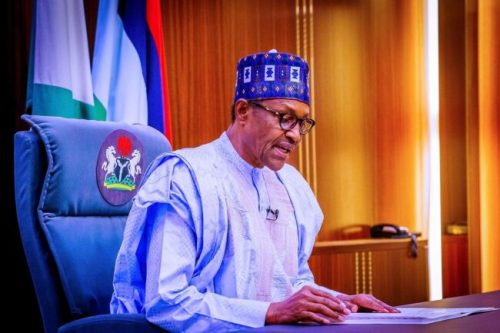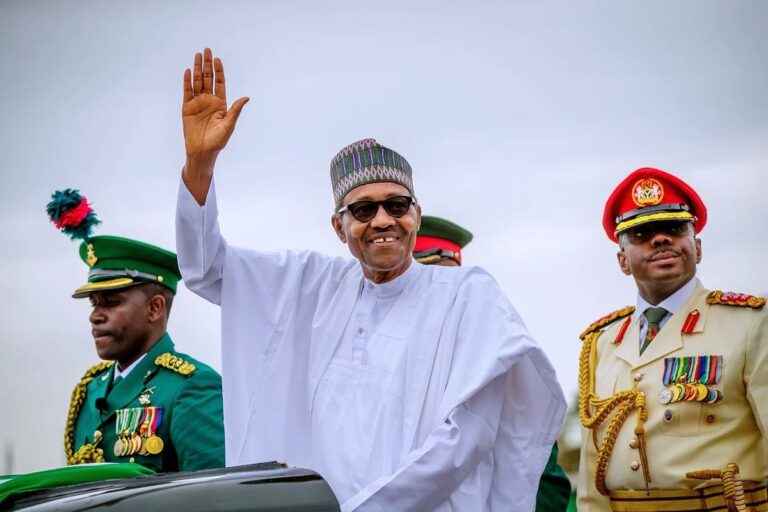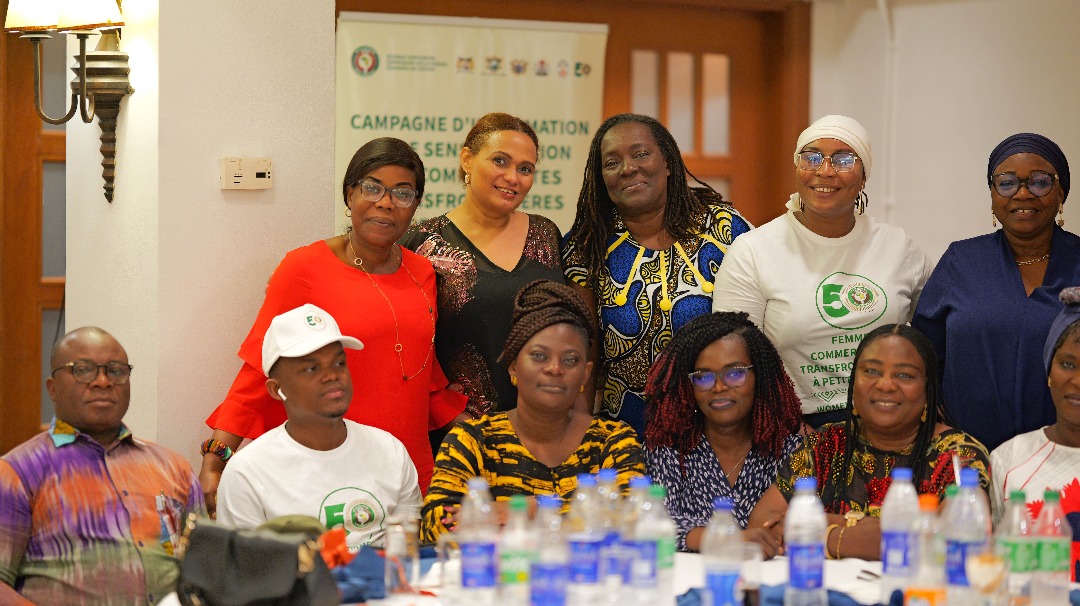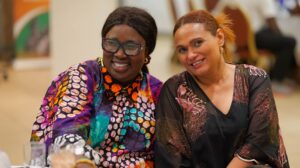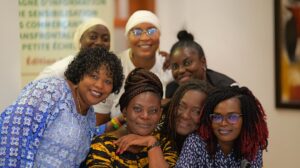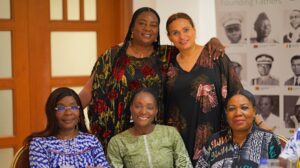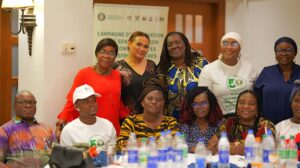Here is the full speech of President Muhammadu Buhari on Nigeria’s 61st independence anniversary.
Citizens of Nigeria.
It is with full gratitude to God that today, we celebrate Nigeria’s sixty-first Independence Anniversary.
2. For the 1st of October 1960 to happen, all hands were on deck. East, West, North all came together to celebrate freedom. Today should not only serve as a reminder of the day the British handed over the reins of power to Nigerians, but also unified Nigerians from all ethnic groups, religions, and regions.
3. Today, despite the challenges we face, most Nigerians still maintain the spirit of 1st October. That positive outlook and determination to make Nigeria a peaceful and prosperous nation. It is due to this collective attitude that Nigeria doggedly continues to remain a united and indivisible nation.
4. Fellow Nigerians, the past eighteen months have been some of the most difficult periods in the history of Nigeria. Since the civil war, I doubt whether we have seen a period of more heightened challenges than what we have witnessed in this period.
5. Our original priorities for 2020 were to continue stabilizing our economy following the deep recession while restoring peace in areas confronted with security challenges. But the COVID-19 pandemic and its devastating impact on all nations meant we needed to shift gears and re-strategize.
6. Nigerians came together as one to fight against COVID-19. It is this attitude and by the special grace of God, we continue to survive the pandemic as a nation and indeed, provide leadership and example at regional and international levels.
7. The doomsday scenario predicted for our country never came. Even as the Delta variant continues to spread, we have built the capacity we need to respond now and into the future.
8. I will therefore appeal to Nigerians not to take COVID lightly, adhere to public health and social measures, put your mask on, and get vaccinated. We can control this pandemic, but it requires effort on everybody’s part. The investments we made in response to COVID-19 will also serve our country to tackle any future disease outbreaks or pandemics.
9. Despite the global inequity in access to vaccines, the Government of Nigeria has continued to explore all available options to ensure Nigerians have free access to safe and effective vaccines.
10. Some five million vaccine doses have been administered to Nigerians through efforts led by the National Primary Health Care Development Agency and we will continue to explore options for purchase or acquisition of vaccines such as through COVAX and the African Vaccine Acquisition Trust.
11. I will take this opportunity to remind the global community that the current state of access to COVID-19 vaccines is unacceptable. We cannot afford a situation where a handful of countries keep the global vaccine supply to themselves at the expense of other nations.
12. We must act now to accelerate the equitable distribution of COVID-19 vaccines. This is the message I conveyed to the international community in New York last week.
13. As we push to source vaccines for our immediate needs, we shall invest more to support our pharmaceutical and research agencies to come up with ideas for locally developed vaccines. Should another pandemic arise in the future, Our question is simple; will Nigeria be ready?
14. Accordingly, I have directed the Ministries of Finance, Budget and National Planning, Health, Education, and Science and Technology to work with Nigerian and International pharmaceutical companies and research organizations to enhance Nigeria’s domestic pharmaceutical capacity.
15. Already, the Nigerian Sovereign Investment Authority is raising a $200 million fund for this initiative that will complement the Central Bank of Nigeria’s ongoing N85 billion Healthcare Sector Research and Development Intervention Scheme to support local researchers in the development of vaccines and drugs to combat communicable and non-communicable diseases, including COVID-19.
Fellow Nigerians, this is just the beginning.
16. Similarly, on our approach to food security, I am proud to announce Nigeria has commenced its journey to pharmaceutical independence.
17. This journey, which will take years to achieve but will ultimately result in Nigerian-based companies developing the Active Pharmaceutical substances and competence needed for us to make our own drugs and vaccines.
Fellow Nigerians,
18. As our economy continues to open after the COVID-19 related lockdowns, we have also seen the resurgence of insecurity in certain parts of the country.
19. In the last four months, the gallant men and women of the Military and Security Agencies have made tremendous progress in addressing these new security challenges. We are taking the fight to our enemies from all angles and we are winning.
20. Earlier this year, I launched the Integrated National Security and Waterways Protection Infrastructure, the Deep Blue Project, which is designed to secure Nigerian waters up to the Gulf of Guinea. I am happy to inform Nigerians that we have taken delivery of key assets for this project and very soon, its impact will be felt.
21. In the North East region alone, over eight thousand Boko Haram terrorists have surrendered.
22. To support our surge approach to fighting banditry, the Nigerian Armed Forces have recruited over 17,000 personnel across all ranks. Furthermore, I have also approved for the Nigerian Police Force to recruit 10,000 police officers annually over the next six years.
23. I am also pleased to note that most of the Air Force platforms we acquired over the past three years have started to arrive in Nigeria. These will positively impact our security operations in all parts of the country.
24. In line with section 14(2)(b) of the 1999 Constitution (as amended), the security and welfare of Nigerians continue to be the prime focus on which programmes and projects of our government revolve.
25. Therefore, as a Government, we are ready to arrest and prosecute all persons inciting violence through words or action. Our resolve for a peaceful, united, and one Nigeria remains resolute and unwavering.
26. That said, our hope is not to fight for peace. We can always settle our grievances peacefully without spilling any blood.
27. I will therefore take this opportunity, on this special day that symbolizes the unity and oneness of our great nation, to ask all Nigerians to embrace peace and dialogue, whatever your grievances.
28. The seeds of violence are planted in people’s heads through words. Reckless utterances of a few have led to losses of many innocent lives and the destruction of properties.
29. Such unfiltered and unsubstantiated lies and hate speeches by a few evil persons must be stopped. Our media houses and commentators must move away from just reporting irresponsible remarks to investigating the truth behind all statements and presenting the facts to readers.
30. We must all come out and speak against the lies being peddled. At this point, I would want to sincerely appreciate a large number of our Traditional, Religious, and Community leaders as well as other well-meaning Nigerians who, in their various fora are openly spreading the message of peaceful co-existence and conflict settlement through dialogue in their respective communities.
31. Nigeria is for all of us. Its unity is not negotiable. And its ultimate success can only be achieved if we all come together with a common goal of having peace and prosperity for our nation.
32. We shall continue to work on dialogue-based solutions to address legitimate grievances. But we remain ready to take decisive actions against secessionist agitators and their sponsors who threaten our national security.
33. The recent arrests of Nnamdi Kanu and Sunday Adeyemo, and the ongoing investigations being conducted have revealed certain high-profile financiers behind these individuals. We are vigorously pursuing these financiers including one identified as a serving member of the national assembly.
Fellow Nigerians,
34. This is a clear example of how people abandon their national leadership positions for their selfish gains. Instead of preaching unity, they are funding and misleading our youth to conduct criminal acts that sometimes lead to unfortunate and unnecessary loss of lives and property.
35. As the so-called leaders run abroad to hide, our innocent youths are misled and left in the streets to fight for their senseless and destructive causes.
36. Government will continue, with a greater level of peoples’ participation and in collaboration with our international partners, to improve the security architecture, reduce enabling environment for criminality to thrive, and eliminate opportunities for terrorism financing.
37. Fellow Nigerians, our unrelenting effort at resolving an almost two-decade stalling on the management of our Petroleum resources and ensuring equitable consideration to our host communities has resulted in the enactment of the Petroleum Industry Act, 2021.
38. This Act not only overhauls the Institutional, regulatory and fiscal framework of the Petroleum Industry but also reduces the previous opacity associated with this sector.
39. This is the first step to the reforms as the process is a continuous one. Already, to further improve the governance framework, I have sought an amendment of sections 11(2)(b) and 34(2)(b). We will also continue to review and amend as appropriate.
40. At this juncture, it is very appropriate that I salute the leadership and members of the Ninth Assembly for their patriotism, dedication to duty, candour, and most importantly the dispatch with which they have enacted legacy legislations for this nation. I do not take such a level of cooperation for granted and hope it continues for the overall efficiency of the Federal machinery.
41. Nigeria’s Roadmap on Local Refining is on track with the Commissioning of a Modular refinery in Imo State.
42. A second is scheduled for commissioning by the end of this year in Edo State and the third one in Bayelsa State by 2022.
43. In addition to the modular projects, we also have the two mega refinery projects coming up in Lagos and Akwa Ibom States.
44. As these refineries are commissioned, more employment opportunities are created and there would be increased petroleum products available for local consumption which will significantly reduce our reliance on importation.
45. In further demonstrating our plan to reduce our dependence on oil and tapping from our enormous gas resources, this administration remains committed to the “Decade of Gas” Initiative, which is aimed at bringing to focus the utilization of our huge gas resources.
46. Already, we are supporting and promoting various gas-based projects including NLNG Train 7 and the mega urea and ammonia projects in the South-South region.
47. As we continue to optimize and enhance our oil and gas sector, I am also proud and delighted to state that our economic diversification strategy remains on course with the persistent increase in Non-Oil Sector contribution to GDP.
48. We recovered from the economic recession in quarter four of 2020 with a GDP growth rate of 0.11%, and grew by 0.51% and 5.01% in real terms in the first and second quarters of 2021.
49. The Agricultural sector remains key to our economic diversification efforts as the sector has been a consistent driver of the non-oil sector contributing 22.35% and 23.78% to the overall GDP in the first and second quarter of 2021.
50. We have seen significant private sector investments in almost all areas of the agricultural value chain. And these have continued even during the COVID-19 pandemic.
51. Unfortunately, as our food production capacity has increased, food prices have been going up due to artificial shortages created by middlemen who have been buying and hoarding these essential commodities for profiteering.
52. To address this, I am hereby directing the Ministry of Agriculture and Rural Development to rehabilitate the National Food Reserve Agency and also work with security agencies, the Nigerian Commodity Exchange, and the National Assembly to find a lasting solution to these disruptive and unpatriotic hoarding activities.
53. To further enhance food production, we have completed several new dams and are in the process of rehabilitating several River Basin Development Authorities to enhance groundwater supply for rainfed agriculture as well as surface water for irrigation agriculture.
54. The water projects we completed between 2015 to 2020 have improved Nigerian’s access to potable water to 71% between 2015 and 2020. This means 12.5 million additional Nigerians now have direct access to potable water.
Fellow Nigerians,
55. This Government remains concerned by the significant transportation infrastructure deficit we have. Addressing the challenges our commuters and lorry drivers face on the motorways is still a high priority to us.
56. To complement our budgetary allocations, the Presidential Infrastructure Development Fund and the Road Infrastructure Development and Refurbishment Investment Tax Credit Scheme, we recently established a N15trillion Infrastructural Corporation of Nigeria Limited (INFRACO), which is expected to begin operation by the fourth quarter of this year.
57. INFRACO will also focus on leveraging resources on a public-private sector basis for infrastructural development in Nigeria.
58. We hope through these innovative programs, the additional cost burden on individuals and businesses because of inefficient logistics operations will be reduced and ultimately, eliminated.
59. We currently have over 13,000 kilometers of roads and bridges under construction all over the country of which a fair percentage have been completed.
60. As we fix our roads, we also continue to extend and upgrade Nigeria’s railway network with the notable opening of the Warri- Itakpe standard gauge rail line.
61. To increase capacity, we have introduced more locomotives, coaches, and wagons including the establishment of a Wagon Assembly in Kajola, Ogun State.
62. The seaports however still remain problematic. The effect of our various interventions to reduce the gridlocks and inefficiencies has been slower than expected.
63. However, the implementation of the Electronic Call-Up System, as well as the conversion of the Lilypond Container Terminal to a Vehicle Transit Area, will further enhance the ease of cargo evacuation.
64. Our prioritization of developing Nigeria’s Digital Economy has positively impacted the contribution of the ICT sector to our GDP.
65. We hope our present efforts to ensure all Nigerians use a National Identification Number, as well as our planned roll-out of the fifth-generation (5G) network technology, will ensure we stay in line with the global innovation curve as a Nation.
66. As we embrace the digital economy in Nigeria, we are fully aware of the prospects and the perils. Our policies have been developed to enable Nigerians to take advantage of the prospects and avoid the perils of digital technologies.
67. Social media is a very useful platform that has enabled millions of Nigerians to connect with loved ones, promote their businesses, socialize, and access news and other information.
68. However, recent events have shown that the platform is not just an innocuous platform for information dissemination.
69. Rather some users have misused the platform to organize, coordinate, and execute criminal activities, propagate fake news, and promote ethnic and religious sentiments.
70. To address these negative trends, the Federal Government of Nigeria suspended the operations of Twitter in Nigeria on June 5, 2021, to allow the Government to put measures in place to address these challenges.
71. Following the suspension of Twitter operations, Twitter Inc. reached out to the Federal Government of Nigeria to resolve the impasse. Subsequently, I constituted a Presidential Committee to engage Twitter to explore the possibility of resolving the issue.
72. The Committee, along with its Technical Team, has engaged with Twitter and has addressed a number of key issues. These are:
a. National Security and Cohesion;
b. Registration, Physical presence, and Representation;
c. Fair Taxation;
d. Dispute Resolution; and
e. Local Content.
73. Following the extensive engagements, the issues are being addressed and I have directed that the suspension be lifted but only if the conditions are met to allow our citizens to continue the use of the platform for business and positive engagements.
74. As a country, we are committed to ensuring that digital companies use their platform to enhance the lives of our citizens, respect Nigeria’s sovereignty, cultural values and promote online safety.
75. Nigeria’s progressive diplomacy continues to manifest through growing numbers of highly placed Nigerians in positions of regional and global influence. Very recently, Nigeria won the election for the position of Commissioner for the expanded Political, Peace, and Security Affairs of the African Union.
76. Our persistent calls for a reorganized and reformed ECOWAS, to make the organization citizens-sensitive, paid off with the acceptance by the Authority of Heads of State and Governments of ECOWAS to commence the agreed reforms in the organization ahead of the next elections of the organization’s principal officers in December this year.
77. At the African Development Bank, World Trade Organization, and indeed, the United Nations, footprints of Nigeria’s Diplomacy are clearly evident.
78. We remain confident that our goal of lifting 100million Nigerians out of poverty in 10 years is achievable.
79. Considering the positive impact of our Social Investment Programs, I recently approved an increase in the number of N-Power program beneficiaries from 500,000 to 1,000,000.
80. Out of this, 510,000 have started the programme while the competitive selection process for onboarding the outstanding 490,000 beneficiaries is in progress.
of Government Enterprise and Empowerment Programme loans to an additional one million beneficiaries laying more emphasis on the smallholding farmers through the farmers Moni program.
Fellow Nigerians,
83. For far too long we have neglected the centrality of the civil service as the engine of governance and this has manifested in ineffective service delivery.
84. There is widespread discontent and disillusion about the efficiency and probity of our civil service.
85. It is for this reason that we are refocusing the Nigerian Civil Service to provide World-class service to run our country.
86. The youths of this great country remain propellants for our today and provide guarantees that we would have a secure tomorrow.
87. It is for this reason that I remain focused on expanding opportunities for their participation in politics and governance.
88. Recent appointments of young people into positions of authority and their track record so far, give me confidence that we need to bring more of them into governance and this I promise to do.
89. More specifically, to encourage Girl-Child Education, female scholarship schemes, life skills, and digital literacy skills to boost girl’s enrolment, retention, and completion of schooling, are all initiatives put in place to ensure gender balance inappropriately positioning our youths for positions of leadership.
90. The commitment of this Administration to the well-being of people living with disabilities remains unwavering.
91. Government recognizes its contributions to the development and I have, in this regard, directed that all relevant Government Agencies pay special attention to the peculiarities of different abilities in the implementation of policies and programmes.
92. Rape and Gender-Based Violence remains a sore point in our Nation as in many countries worldwide and this was worsened during and after the outbreak of the COVID-19 pandemic.
93. We are currently engaging Heads of Courts to establish Specialised Courts for the speedy and seamless trial of Rape/Gender-Based offenses especially to ensure that justice is done for child victims of sexual violence.
94. On the other hand, work has advanced in the reformation, reintegration, and reunification of Minors involved in one crime or the other.
95. The reformation in our Correctional Services has manifested in an increase in modernized custodial centers and a transformation from strictly punitive to attitudinal changes so that criminals do not relapse into their previous lifestyle.
96. As we begin to celebrate our sixty-one years as a Nation, we need to be conscious that Nigeria does not start and end with the Federal Government. This country is a great collective where the Government at all arms and levels as well as the private sector, and more importantly individuals, have a role to play.
97. In particular, security is a bottom-to-top undertaking. Joining hands and hearts together would enable us to secure ourselves and our country.
98. I fully understand the anxiety of many Nigerians on the inability of this country to go beyond a never-ending potential for becoming a great nation to an actually great one.
99. A lot has been achieved in the last six years on many fronts: in infrastructure, social care, governance, Nigeria’s image, and influence in Africa and the international community.
100. But critics misdiagnose incremental progress as stagnation. Since coming to power, this Administration has tackled our problems head-on in spite of the meager resources. No government since 1999 has done what we have done in six years to put Nigeria back on track.
101. We shall continue to serve the country: listen to all and protect our democracy and country.
Thank you all and God bless the Federal Republic of Nigeria.

 BIG STORY3 days ago
BIG STORY3 days ago
 BIG STORY3 days ago
BIG STORY3 days ago
 BIG STORY4 days ago
BIG STORY4 days ago
 BIG STORY3 hours ago
BIG STORY3 hours ago
 BIG STORY3 days ago
BIG STORY3 days ago
 BIG STORY3 days ago
BIG STORY3 days ago
 BIG STORY2 days ago
BIG STORY2 days ago
 BIG STORY4 days ago
BIG STORY4 days ago




